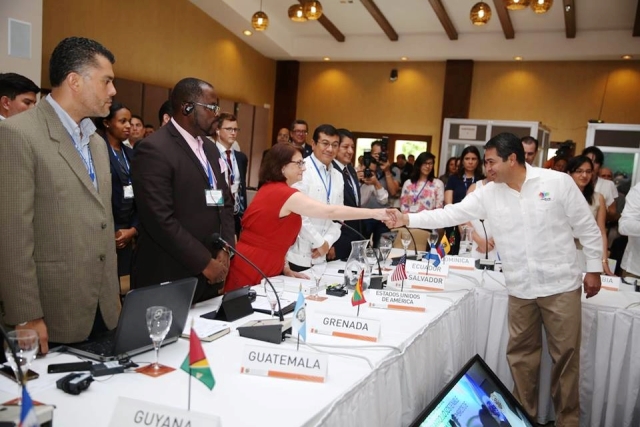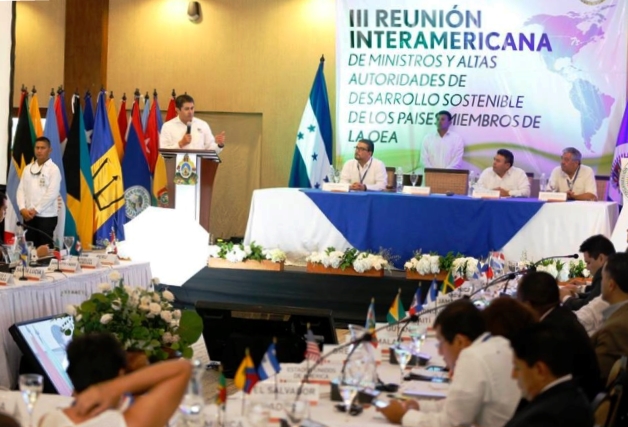
 “Sustainable development is not an option but an imperative,” OAS Assistant Secretary General Nestor Mendez reminded delegates at the opening of the Third Inter-American Meeting of Ministers and High Authorities on Sustainable Development, held October 19-20 in Tela, Honduras.
“Sustainable development is not an option but an imperative,” OAS Assistant Secretary General Nestor Mendez reminded delegates at the opening of the Third Inter-American Meeting of Ministers and High Authorities on Sustainable Development, held October 19-20 in Tela, Honduras.
“To be able to provide a better quality of life for the peoples of the hemisphere and at the same time preserve the natural resources on which all life depends, sustainable development will require the adoption of clear and flexible policies and strategies so that they can be adapted to the different forms of production and consumption of goods and services,” Mendez said.
He urged the countries in the region to “seize upon the momentum” generated by the United Nations General Assembly’s recent adoption of the 2030 Agenda for Sustainable Development. The new Sustainable Development Goals will not only provide a template for reporting on progress in specific areas, but they “promise to fundamentally transform the way decisions are made at the national, regional, and global levels and to ensure that all relevant social, economic, and environmental perspectives are taken into account,” Mendez said.
 Over the years, the countries of the Americas have strived to promote development strategies that “include sustainability as an essential requirement for the balanced, interdependent, and integral attainment of economic, social, and environmental goals,” as the 1996 Summit of the Americas on Sustainable Development put it, in the Declaration of Santa Cruz de la Sierra.
Over the years, the countries of the Americas have strived to promote development strategies that “include sustainability as an essential requirement for the balanced, interdependent, and integral attainment of economic, social, and environmental goals,” as the 1996 Summit of the Americas on Sustainable Development put it, in the Declaration of Santa Cruz de la Sierra.
At the recent event in Honduras—the third such meeting in the framework of the Inter-American Council for Integral Development—the countries reaffirmed their commitment to this effort, in the Declaration of Tela for Sustainable Development in the Americas. They also extended the Inter-American Program for Sustainable Development through 2016, and approved a strategic framework for updating the program. This includes six strategic areas for action: disaster risk management; sustainable management of ecosystems; integrated water resources management; sustainable cities and communities; sustainable energy management, with priority given to the promotion of clean, renewable, environmentally sustainable energy and energy efficiency; and capacity-building for efficient, effective, accountable, and inclusive institutions for sustainable development.
 View Map
View Map